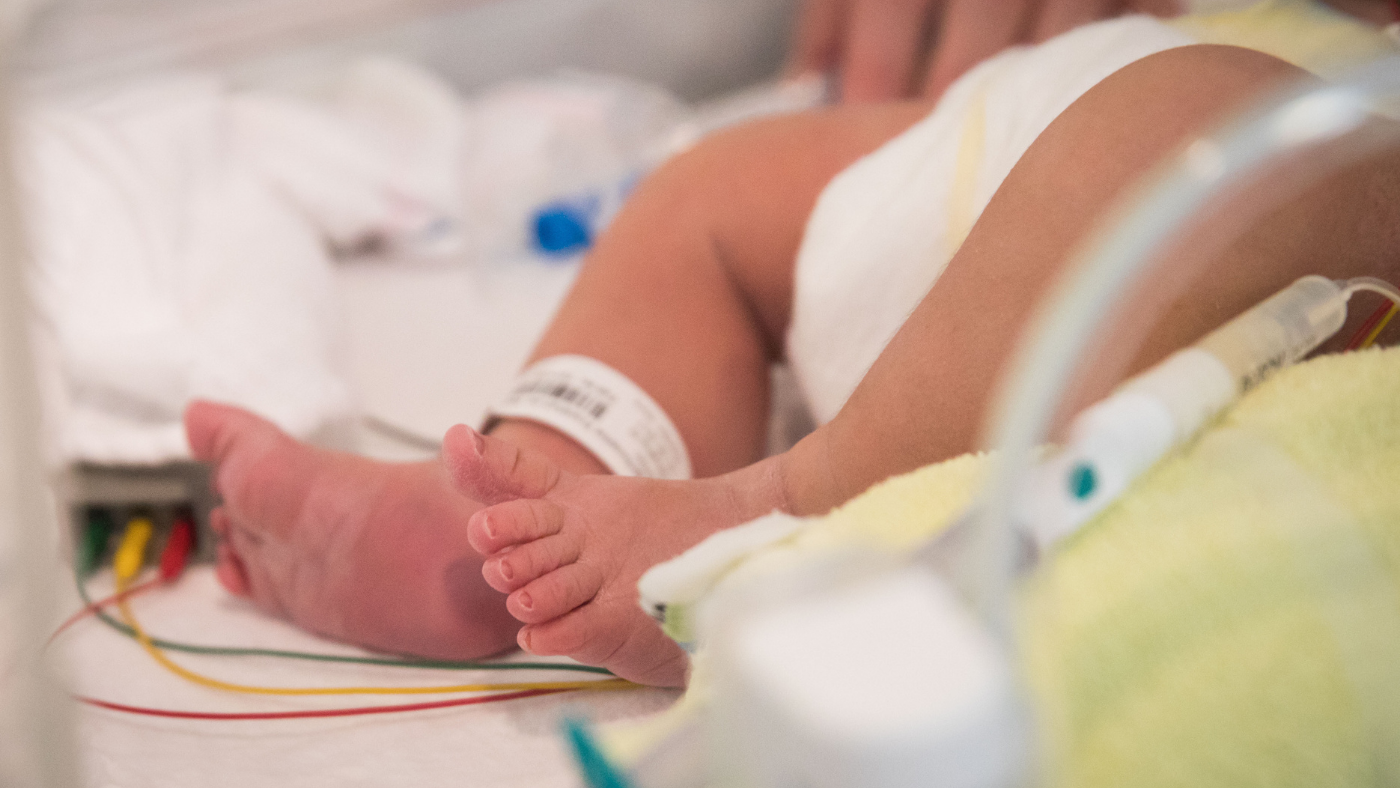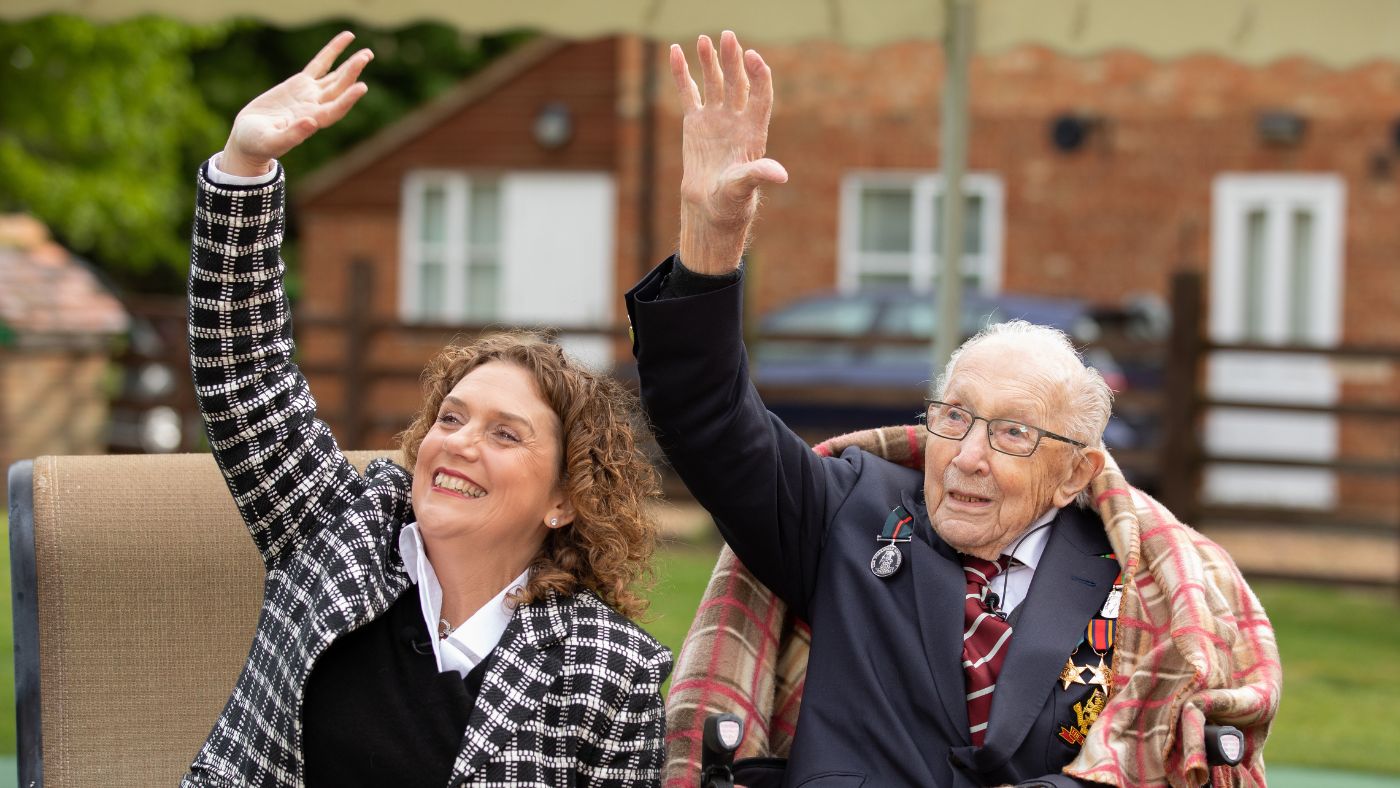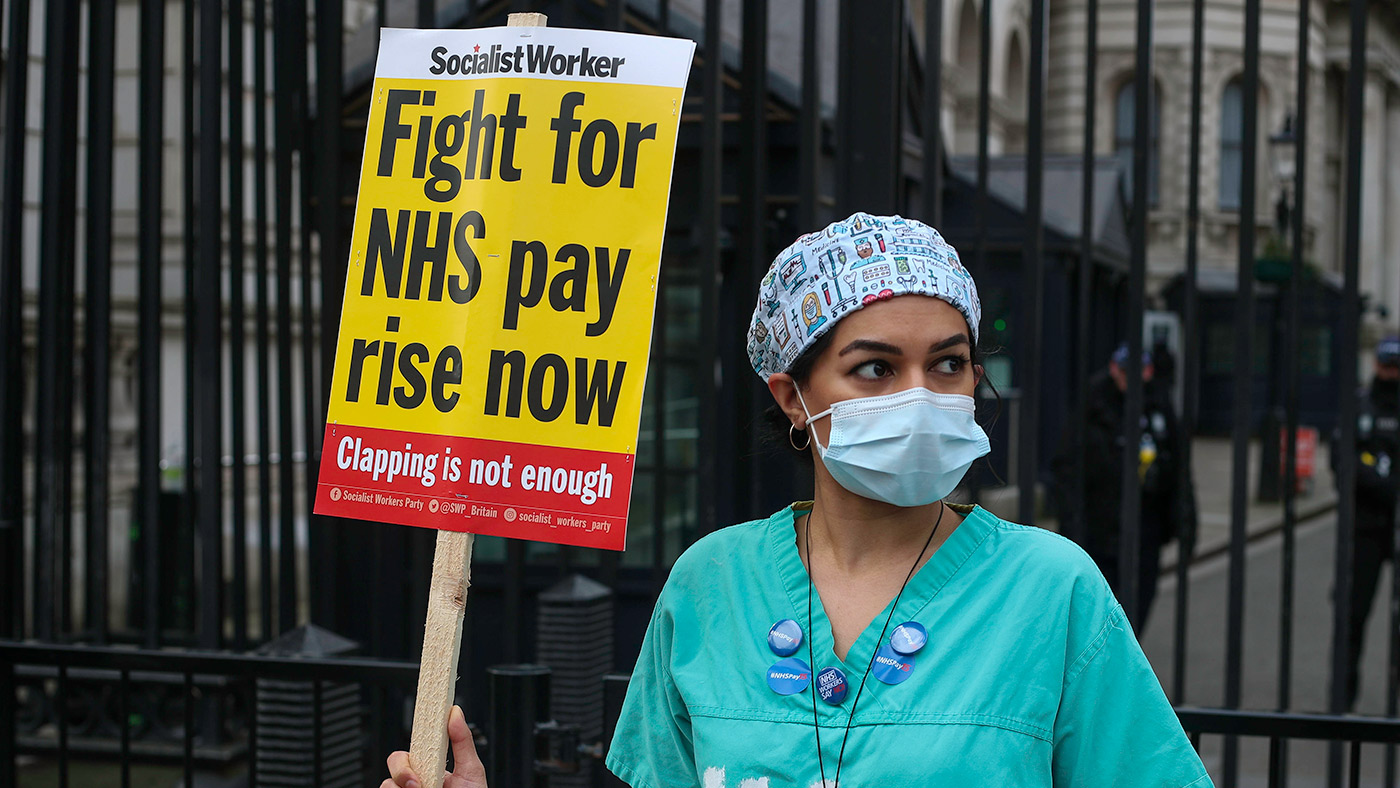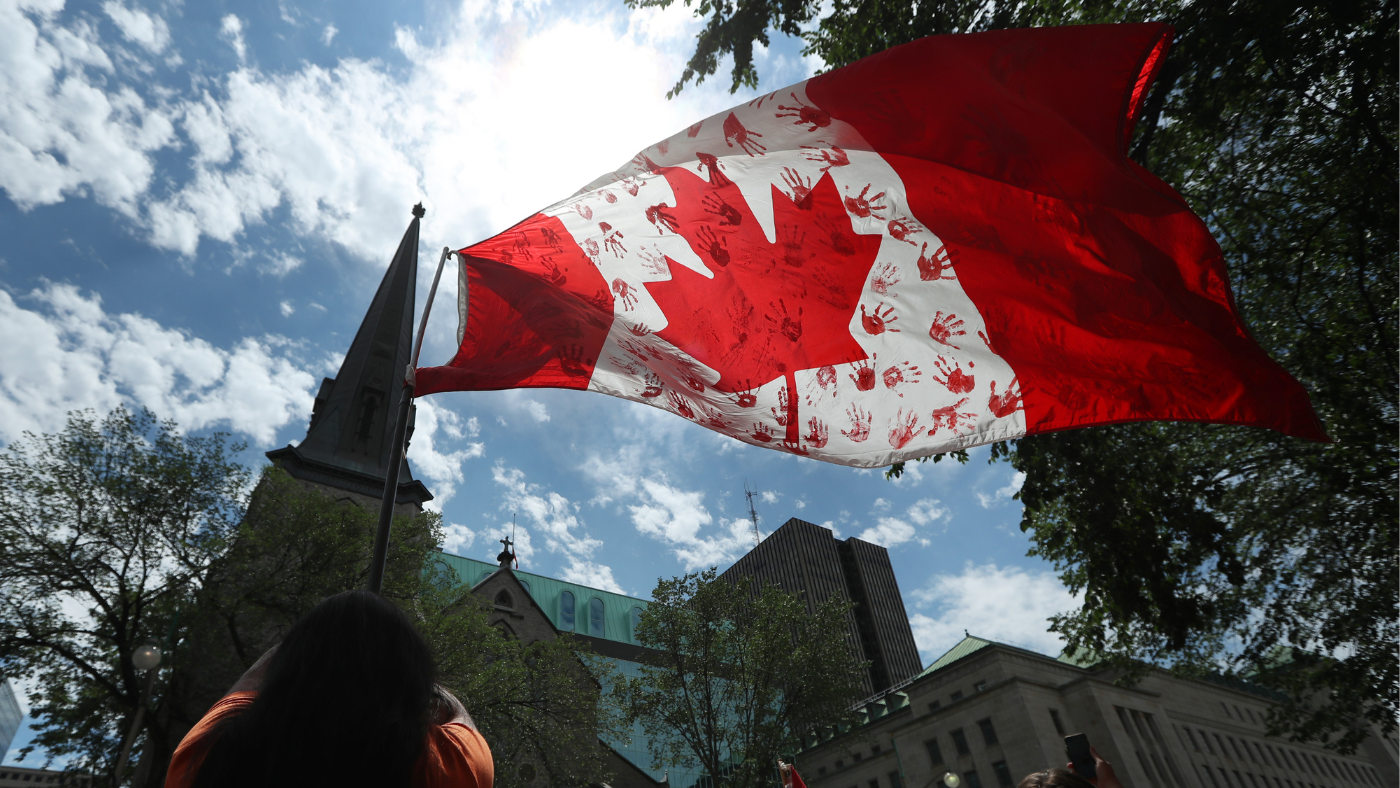‘Most maternity care failings haven’t been exposed yet’
Your digest of analysis from the British and international press

- 1. The midwife crisis demands action – before it is too late
- 2. Seeking social care in a hostile environment
- 3. To have a child or not is a huge decision. So why is there so little discussion of it?
- 4. Britain needs to give Zelenskyy the firepower he needs to crush Putin’s psychopathic invaders
- 5. My electric car journey from hell shows buyers must beware
A free daily email with the biggest news stories of the day – and the best features from TheWeek.com
You are now subscribed
Your newsletter sign-up was successful
1. The midwife crisis demands action – before it is too late
Leah Hazard at The New Statesman
on ‘dangerous’ staffing levels
Last week a midwife told Leah Hazard she had just had a panic attack at work. “‘The staffing has been dangerous for months,’” she said – “not just the odd day here or there, not just a few weeks, but months”, writes Hazard at The New Statesman. Since writing a memoir on her midwifery career, Hazard says “my phone has bleeped and pinged with cries for help on an almost daily basis. I seem to have become a kind of unwitting agony aunt for colleagues” who are “desperate for someone, anyone, to hear their stories”. The messages are “disturbingly similar” and “the problems within the system are endemic”. Maternity care failings at Shrewsbury and Telford Hospital NHS Trust have been described as “the biggest scandal in the history of the NHS”, but “the public may not realise” that “the true scandal is even bigger. The failings are everywhere, and they’re ongoing. Most of them just haven’t been exposed yet.” The government “needs to realise that birth isn’t just a sideshow, and midwifery isn’t just nice ladies smiling and holding other nice ladies’ hands”.
The Week
Escape your echo chamber. Get the facts behind the news, plus analysis from multiple perspectives.

Sign up for The Week's Free Newsletters
From our morning news briefing to a weekly Good News Newsletter, get the best of The Week delivered directly to your inbox.
From our morning news briefing to a weekly Good News Newsletter, get the best of The Week delivered directly to your inbox.
2. Seeking social care in a hostile environment
Trevor Phillips at The Times
on pressing questions
Liam Fox “will have gained a small army” of fans last week when his Down’s syndrome bill became law, writes Trevor Phillips at The Times. The legislation will require government to issue statutory guidance on the housing, educational and social care needs of people with the condition. “It is a world first,” says Phillips; “no other country has taken this step.” As a result: “Parents wading through official bureaucracy will acquire a new weapon with which to tackle jobsworths,” with 40,000 families being given the right to “choose schools and homes that work for them”. Increasingly young people with eating disorders, autism or Down’s syndrome are having to “navigate the maze” of social care, “an environment so hostile as to make any Home Office official green with envy at its ingenuity in denying assistance to the most needy”. Brits are to start paying a levy of 1.25% on wages to fund the NHS and social care systems, but “we have yet to hear how the money is to be spent” on the latter. “Some fundamental questions” – like whether younger generations should “continue to pay for the care of the old” – can “no longer be put off”.
A free daily email with the biggest news stories of the day – and the best features from TheWeek.com
3. To have a child or not is a huge decision. So why is there so little discussion of it?
Rhiannon Lucy Cosslett at The Guardian
on having kids
“Long before” Rhiannon Lucy Cosslett became pregnant, she asked people how they knew they wanted to have children. “Was there a lightning moment, or had the longing grown and grown until it became too much to ignore?” she writes at The Guardian. The answers “were as varied as people themselves”, and this writer’s feelings were “far from simple… There were so many rational reasons not to become a parent.” But she felt a longing “so powerful” that she felt “unspeakably sad” at the prospect of not having children. “It is, of course, a privilege to dither,” and Cosslett thinks “we need more open conversations about the decision-making process, and better ways of supporting people who are in the midst of it”. There is “panic about the birthrate”, as half of women in England and Wales are reported not to have had a child by the time they reach 30 – “yet there seems to be little exploration of the fact that many western countries are what could be termed hostile environments for new parents”. This writer thinks “we could do with less judgment, and more listening”.
4. Britain needs to give Zelenskyy the firepower he needs to crush Putin’s psychopathic invaders
The Sun Says
on ‘genocidal atrocities’
“The subhuman depravity of Vladimir Putin’s invaders plumbs new depths daily,” says The Sun. As the Russian president’s “shambolic forces beat a humiliating retreat from the west of Ukraine, the full scale of the slaughter they have left in their wake is emerging”. This includes “mass graves”, reports that women have been “gang-raped and murdered. Civilians, including children, tortured, mutilated, tied up then casually executed.” The streets are scattered with “discarded” bodies, “like yesterday’s rubbish, some even booby-trapped with mines”. The “genocidal atrocities” being carried out by Russian soldiers “are indistinguishable from those of the Second World War Nazis”. Some world leaders “may mistake Volodymyr Zelensky’s improbable success in turning the bloody tide for an excuse to ease off on sanctions against Moscow”. But “they would be wiser to follow Boris Johnson’s clarion call to seize the initiative”. The newspaper stands “four-square behind the PM in wanting to give Zelensky the firepower he needs” to “crush Putin’s rabble of psychopathic cut-throats”.
5. My electric car journey from hell shows buyers must beware
Iain Dale at The Telegraph
on range anxiety
Iain Dale got an electric car in November, “something I never thought I would do”, he writes at The Telegraph. “It was a perfectly rational economic decision” that Dale calculated would save thousands of pounds each year, and had “nothing to do with ‘virtue signalling’”. But it turned out there was “quite a lot” not to like about the decision. “The main difference when you drive an electric car on a long journey is that you have to plan,” using apps to figure out where charging points are. On one occasion, Dale’s journey “proved to be a disaster”. A trip “that should have taken four hours lasted an astonishing 10¾. It was a day completely wasted.” Three charging points he tried “were either in use or didn’t work… Range anxiety is a real phenomenon.” Transport Secretary Grant Shapps has announced a target of 300,000 more chargers across the country by 2030, but he’s “fatally” left it to local authorities “to make sure the roll-out happens. Mark my words, it won’t. Not without national direction.”
-
 How the FCC’s ‘equal time’ rule works
How the FCC’s ‘equal time’ rule worksIn the Spotlight The law is at the heart of the Colbert-CBS conflict
-
 What is the endgame in the DHS shutdown?
What is the endgame in the DHS shutdown?Today’s Big Question Democrats want to rein in ICE’s immigration crackdown
-
 ‘Poor time management isn’t just an inconvenience’
‘Poor time management isn’t just an inconvenience’Instant Opinion Opinion, comment and editorials of the day
-
 Captain Tom charity closes to donations amid daughter’s pool row
Captain Tom charity closes to donations amid daughter’s pool rowSpeed Read Hannah Ingram-Moore to appeal council order to demolish spa complex at her home
-
 The Week Unwrapped: Sex and health, the Earth’s core and another new year
The Week Unwrapped: Sex and health, the Earth’s core and another new yearpodcast Is the NHS failing British women? What’s going on at the centre of our planet? And what’s in a date?
-
 National nursing strike: should the patient ‘always come first’?
National nursing strike: should the patient ‘always come first’?Talking Point Recent YouGov poll found that 65% of public approves of strike action
-
 The science behind lab-grown blood
The science behind lab-grown bloodfeature Development of ‘absolute game changer’ could help those with sickle cell and other conditions
-
 ‘The UK’s malaise will not end with the Prime Minister’s exit’
‘The UK’s malaise will not end with the Prime Minister’s exit’Instant Opinion Your digest of analysis from the British and international press
-
 ‘Police tactics are not getting worse, they are simply being filmed’
‘Police tactics are not getting worse, they are simply being filmed’Instant Opinion Your digest of analysis from the British and international press
-
 ‘G7 leaders missed a golden opportunity’
‘G7 leaders missed a golden opportunity’Instant Opinion Your digest of analysis from the British and international press
-
 ‘It takes some soul searching to celebrate Canada Day’
‘It takes some soul searching to celebrate Canada Day’Instant Opinion Your digest of analysis from the British and international press